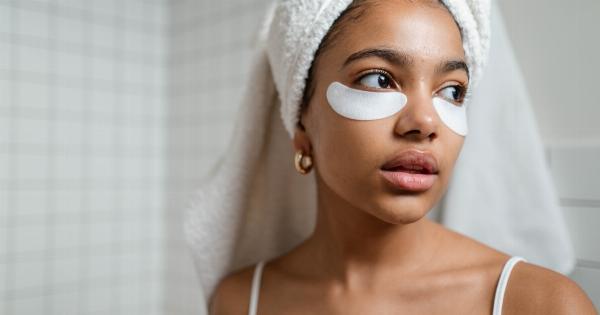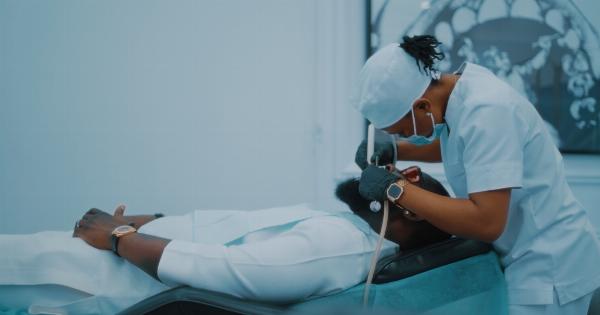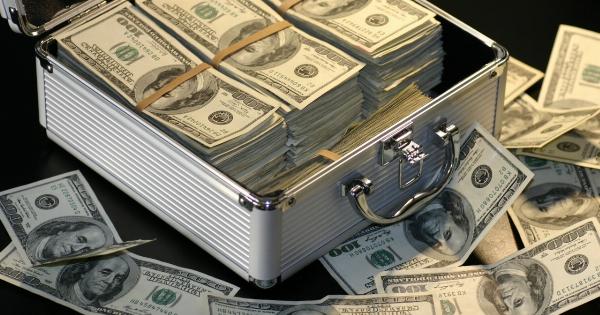Hiccups, although harmless and often temporary, can be a nuisance and sometimes even embarrassing.
We’ve all experienced them at some point, but have you ever wondered what causes hiccups and if there are any effective cures? In this article, we will delve into the truth behind this annoying reflex, explore some common causes, and reveal different ways to alleviate hiccups.
What Are Hiccups?
Hiccups, medically known as synchronous diaphragmatic flutter (SDF) or singultus, are involuntary contractions or spasms of the diaphragm muscle.
The diaphragm is a dome-shaped muscle located beneath the lungs that plays a crucial role in the breathing process. When it contracts suddenly and involuntarily, it causes the characteristic “hic” sound.
What Causes Hiccups?
Hiccups can occur due to various reasons, although the exact cause is not always clear. Some common triggers include:.
1. Eating or Drinking Too Quickly
Consuming food or beverages rapidly can lead to hiccups. This habit may cause the stomach distension or irritation, which then stimulates the diaphragm and triggers hiccups.
2. Swallowing Air
Swallowing air, especially while eating or drinking, can result in hiccups. Aerophagia, the medical term for excessive air swallowing, can cause distention in the stomach, leading to hiccup episodes.
3. Nerve Irritation
Conditions that irritate or damage the phrenic nerve, which controls the diaphragm’s movement, can cause hiccups. Examples include gastroesophageal reflux disease (GERD), pneumonia, pleurisy, and tumors pressing on the nerve.
4. Eating Spicy Foods
The consumption of spicy or hot foods can irritate the esophagus or stomach lining, leading to hiccups.
5. Sudden Temperature Changes
Rapid shifts in temperature, such as drinking a hot beverage followed by a cold one, can sometimes trigger hiccups.
6. Emotional Factors
Strong emotions like excitement, stress, or anxiety can induce hiccups. These emotions may interfere with the normal functioning of the nerves controlling the diaphragm.
7. Certain Medications
Some medications, such as benzodiazepines, opioids, and corticosteroids, have been associated with causing hiccups as a side effect.
8. Abdominal Surgeries
Surgical procedures involving the abdomen, particularly those affecting the phrenic nerve or diaphragm, can sometimes lead to hiccups as a post-surgical complication.
9. Medical Conditions
Underlying medical conditions such as multiple sclerosis, stroke, central nervous system (CNS) disorders, or brain damage can disrupt the normal functioning of the nerves and contribute to hiccups.
10. Persistent Hiccups
Hiccups that last longer than 48 hours are considered persistent. While rare, persistent hiccups may indicate a more serious underlying medical condition and require medical attention.
How to Cure Hiccups?
Fortunately, most hiccups go away on their own within a few minutes or hours. However, for those seeking immediate relief or dealing with persistent hiccups, numerous remedies can help alleviate the reflex. Here are some tried and tested hiccup cures:.
1. Holding Your Breath
A common technique involves taking a deep breath, holding it for a few seconds, and exhaling slowly. Repeat this process a few times to reset the diaphragm and potentially stop the hiccups.
2. Drinking Water
Sipping on a glass of water or gargling with cold water can stimulate the vagus nerve, which can interrupt the hiccup cycle and provide relief.
3. Breath Control Techniques
Breathing into a paper bag, pursing your lips while exhaling forcefully, or even breathing in a specific pattern (e.g., inhaling slowly through the nose, holding the breath, and exhaling through pursed lips) can help regulate the diaphragm and alleviate hiccups.
4. Applying Pressure
Applying gentle pressure to certain trigger points, such as the roof of the mouth, the area above the upper lip, or the back of the neck, can potentially interrupt the hiccup reflex.
5. Startling or Distracting Yourself
Engaging in a sudden, unexpected activity or diverting your attention elsewhere, such as focusing on a complex mental task or even getting scared, can sometimes halt the hiccup cycle.
6. Eating or Drinking Certain Substances
While not scientifically proven, some individuals find relief from hiccups by consuming certain substances, such as a spoonful of sugar, a slice of lemon soaked in bitters, or even a teaspoon of vinegar.
These remedies may help stimulate the nerves involved in the hiccup reflex.
7. Medications
In severe or persistent cases, a doctor may prescribe medications like chlorpromazine, baclofen, or metoclopramide, which can help relax the diaphragm and suppress the hiccup reflex.
When to Seek Medical Attention?
Most hiccups resolve on their own and are not a cause for concern. However, medical attention may be necessary if:.
1. Hiccups Persist for Over 48 Hours
If the hiccups continue for an extended period, exceeding 48 hours or becoming recurrent, it is advisable to consult a healthcare professional. Persistent hiccups might signal an underlying medical condition requiring treatment.
2. Hiccups Interfere with Daily Life
If hiccups are disruptive, making it difficult to eat, sleep, or perform routine activities, seeking medical advice becomes essential.
Final Thoughts
Hiccups may interrupt our daily lives and cause annoyance, but they usually resolve spontaneously without any lasting effects. Understanding the common causes of hiccups allows us to adopt preventive measures to avoid triggering this reflex.
However, if hiccups persist or become chronic, it is wise to consult a healthcare professional for proper evaluation and treatment.






























